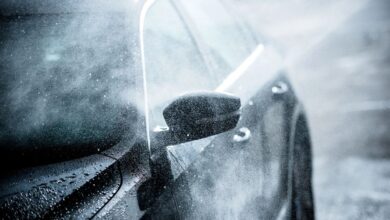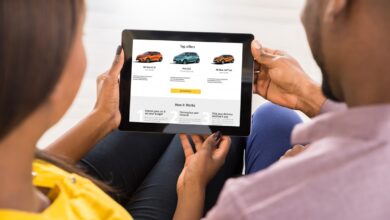Guide to buy a used car


Legal aspects of buying a car
Many questions may come up when buying a used car such as how to transfer the ownership, how to register the car from another state or province, what papers are required to register the vehicle, the owner’s and buyer’s responsibilities, etc. Because each province or state may have different laws and requirements for the sales transaction of the car, it is best to call your local vehicle registration office or Department of Motor Vehicles, or legal authorities. Be careful when doing the paperwork. For example, if you buy from a private owner, make sure there are no registered liens against the vehicle and that the person who signs the Bill of Sale is the actual owner of the car. Check with the Vehicle Registration Authorities to make sure the car has not been stolen. If buying from a dealer, read the warranty policy and all the papers including the fine print very carefully. Do not rely on verbal promises. Whatever is promised by the salesperson, get it in details in writing. Find out if the remaining original warranty will be transferred into your name. Different manufacturers have different warranty policies about this.
Buying an extended warranty
All new cars come with original warranty provided by a car manufacturer. This original warranty covers most of the vehicle components for a certain period – most commonly, three years or 36,000 miles. After the original warranty expires, you will have to pay for all repairs out of your pocket. This is when an extended warranty may be helpful. An extended warranty is basically a service contract between the car owner and the warranty company. According to this contract, the warranty company will pay for the repairs covered by the contract for a specific period of time. It’s something like a health insurance for your car. With an extended warranty you are protecting yourself from unexpected repair costs.
For instance, you bought a used car that is out of original warranty and the transmission fails. If you don’t have an extended warranty you will have to pay out of from your pocket, transmission repair may cost you more than a couple thousand dollars. If you have a good extended warranty, it would cover most of the repair costs – in some cases you would only have to pay a diagnostic fee, or a deductible, depending on the type of warranty you have.
However, not all cars are qualified for an extended warranty and not everything is covered. Items like belts, brakes, tires and other wearable parts are usually not covered. Also, you still have to maintain your car properly and keep all the receipts.
Do’s and Don’ts when buying a Used Car
Do Check a used car history report This does not give you a 100 percent warranty that the car has no problems, but may save you some money if it will show you some bad records, for example, if the car was written off after an accident or has had an odometer rolled back.
Do have the vehicle inspected; it may save you a lot of money.
Don’t buy a car after a serious accident – especially following a frontal collision. You wouldn’t believe how many possible problems may arise later as a result of an accident.
Don’t buy a car as soon as you see it. Take your time, test drive the car as long as you can. For example, some problems may only be caught when the engine is cold while other problems may only be discovered when cruising at highway speeds, etc.
Don’t base your decision on what you have been told. “One Owner, highway driven” in fact, may be an ex-rental, heavily abused vehicle.
Don’t buy a car if you have reservations or hesitate for one reason or another…if you don’t have a good ‘gut’ feeling about it. If the engine seems too noisy or works as if it is in rough shape and sounds heavy, the transmission shifts harshly, some works needs to be done, something seems to be wrong with the papers, etc. – move on.
Don’t buy a car if it needs some “minor” repairs. Often this results in spending big bucks for repairs that never seem to end.
Don’t buy a flooded car; it may look good and still be drivable but later a flooded car may develop many expensive to fix problems: corrosion, electrical, electronics, wheel bearings, transmission, etc.
Don’t be rude to a salesperson at the dealership. Regardless of the many stereotypes we share, many salespersons are genuinely nice people. Be persistent but not rude; treat them well and they will be willing to help you…




